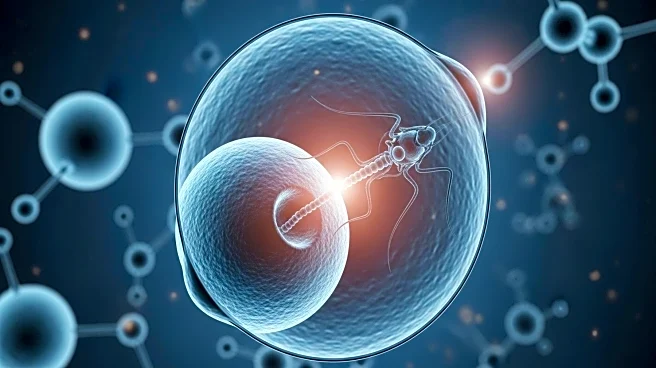What is the story about?
What's Happening?
Researchers at Imperial College London have identified a novel mechanism by which 'pirate' phages contribute to the spread of antimicrobial resistance (AMR). These phages hijack the tails of other viruses to invade new bacterial hosts, facilitating horizontal gene transfer (HGT). This process, termed 'tail piracy,' allows the transfer of virulence and antibiotic-resistance genes across different bacterial species. The study, published in Cell, highlights the role of capsid-forming phage-inducible chromosomal islands (cf-PICIs) in this mechanism. The research also involved collaboration with Google Research, where an AI model successfully hypothesized the mechanism before it was experimentally confirmed.
Why It's Important?
The discovery of 'pirate' phages' role in AMR is significant as it sheds light on a previously unknown pathway for the spread of antibiotic resistance. This understanding could lead to the development of new strategies to combat AMR, a major public health threat. The study also demonstrates the potential of AI in scientific research, as the AI model accurately predicted the mechanism of gene transfer. This collaboration between AI and experimental science could accelerate future discoveries in microbial evolution and resistance mechanisms.
What's Next?
Future research will focus on understanding the molecular basis of cf-PICIs' interactions with phage tails and the ecological consequences of this gene transfer mechanism. The researchers have filed patents for diagnostic tools and antimicrobial applications based on their findings. This work could lead to next-generation therapies to address difficult infections. Additionally, the study highlights the need for further exploration of AI's role in generating scientific hypotheses and advancing research.
Beyond the Headlines
The study reframes our understanding of microbial evolution and highlights the intricate mechanisms of gene transfer in nature. It also underscores the importance of interdisciplinary collaboration, combining biology and AI to tackle complex scientific challenges. The ethical implications of using AI in research, particularly in hypothesis generation, warrant further discussion as this approach becomes more prevalent.

















